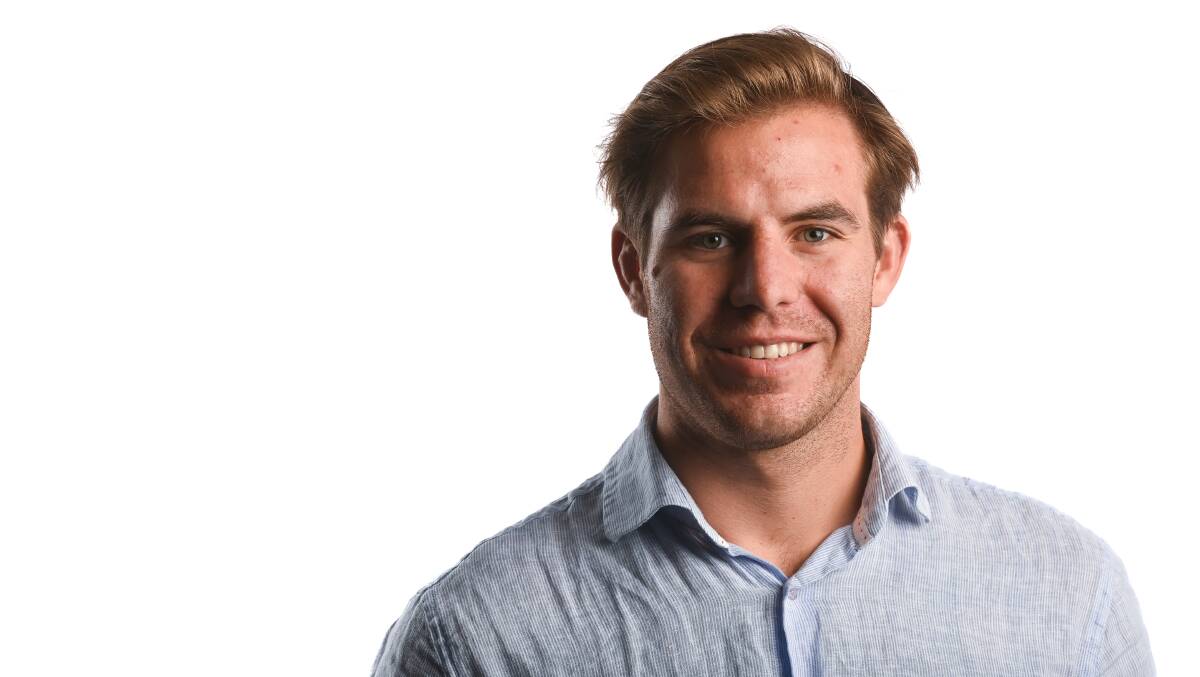Young entrepreneur Tom Baulch's average work day is spent scrolling through social media searching for what's "trending".
The idea is to develop content ideas that will reach as many eyeballs as possible.
For Mr Baulch and so many other young people like him, life is a world of algorithms.

"If you're not focusing on social media for your business, you will fail in this day and age," he said.
"Whether your product is better or worse, it doesn't matter; people will buy the product with more likes."
Fitness in your phone
The 23-year-old social media influencer, who grew up in Gladstone, Queensland, moved his personal training business online and created Prime Training during the pandemic.
He started selling eight-week training programs but has since diversified into selling athletic and leisure wear, nutrition supplements, a soft drink and representing several brands.
Since 2021, he has attracted 450,000 followers across TikTok, Facebook, Instagram, Twitter, Threads and YouTube - with 12.9 million likes on TikTok alone.
"I was so lucky that I used TikTok initially," Mr Baulch said.
"TikTok is a way for you to post a video and get it out to as many potential customers as possible without paying for ads, because the algorithms and the 'for you' page directly target your audience.
"So on the back of that, I grew to 150,000 followers in six months."
His content focuses on fitness training, Aussie Rules, lifestyle and game-day vlogs playing for the Wangaratta Rovers in the Ovens and Murray Football League in north-east Victoria.
'Hours' of work behind the scenes
With his podcast Prime Pod, he gets thousands of views daily.
But it wasn't always that way.
"Many people who start in business think it will be an overnight success," he said.
"A lot of people probably see me now and say, 'I want to do what you do', but they don't see the hours that go in behind the scenes.
"I remember the first few videos I posted got two or three likes - I wasn't getting anywhere.
"It's not until you continually and consistently post that you eventually start to see some traction."
Rise of internet business
Web-based services are a growth business, strategic management expert at Melbourne Business School, Kwanghui Lim, said.
"Companies that want to expand their reach today rely on influencers to represent their brand or to grow their brands to more micro-targeted demographics," he said.
Artificial Intelligence's ability to process copious volumes of data has also allowed brands better access to their target audience.
"There are also web services like Amazon or Netflix," Associate Professor Lim said. "These services have only started to pop up and become viable recently."
The ground can shift under you at any moment.
- Associate Professor Kwanghui Lim, strategic management, Melbourne Business School
He said there are two driving forces behind this: the pervasiveness of high-speed internet and web-based payment services like PayPal, ApplePay and Bitcoin.
Associate Professor Lim said the internet has helped entrepreneurs by enlarging the pool of potential employees through services like Seek and LinkedIn.
It has also allowed more access to start-up funding through websites such as Kickstarter.
Downsides of online
The internet has lowered the barrier to entry for entrepreneurs and, by so doing, has created greater competition.
"If you look at the podcast market, for example, there's so many people trying to create podcasts, which means it's very tough to stand out and succeed," Associate Professor Lim said.
Another challenge modern entrepreneurs face is becoming dependent on top-down companies.
"The ground can shift under you at any moment," he said.
"There are lots of companies that built on top of Twitter. Then Elon Musk came in, zapped it, and changed the deal with many of these companies.
"So they are no longer viable because he now wants to charge them for things that before they depended on assuming they would be able to afford."
'Nothing great is easy'
Having a public profile on social media exposes Mr Baulch to a lot of hate and praise.
He said if a young person is reading this and wants to follow in his footsteps, they should block out the noise and focus on their vision.
"I think everyone means well, but especially in Australia, we give a little bit of back and forth but don't take it to heart," he said.
"Nothing great is easy, so just continue to strive for your goals and reach your dreams."
My story

Moving to regional Australia from Sydney, I was well aware of the grit and hard work our regions are known for.
But having been here for some time, I see these communities are also brimming with innovation and an inventive spirit.
This Young and Regional series has introduced me to some of these budding entrepreneurs, the challenges they must overcome, and their adaptability in meeting the demands head-on.
The future of regional Australia is strong!


